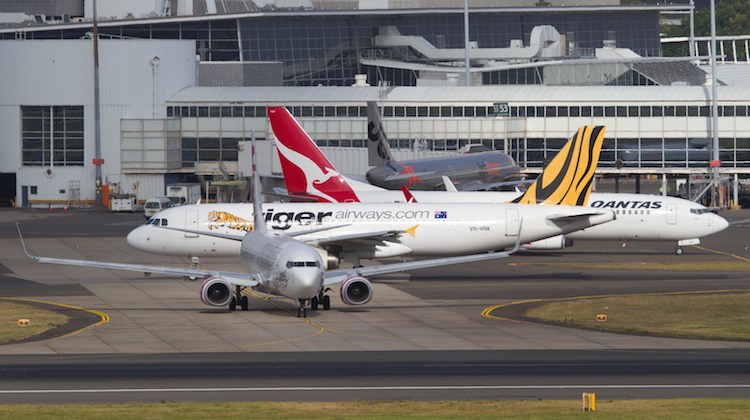
Ticket prices for domestic travel have risen sharply in May both at the pointy end of the aircraft and in the main cabin, figures from the Bureau of Infrastructure, Transport and Regional Economics show.
The most pronounced jump was in the index measuring business class fares, which rose to 91.2 index points in May, compared with 72.2 points in May 2014.
In the restricted economy category, the index rose to 79.6 points, from 75.5 points in the prior year.
And best discount economy was also up sharply at 57.6 points, compared with 49.8 points in the prior corresponding period.
Rising ticket prices have come as Australia’s two major airline groups, Qantas and Virgin Australia, have reported improving yields – or average airfares per passenger – in recent times amid slower capacity growth slowed in a still subdued local market.
Qantas told the financial community during its investor day on Tuesday domestic market conditions were now more stable, with a demand and supply more balanced.
Meanwhile, Virgin said in its third quarter financial results release on May 1 yields across the airline group and in the domestic market “continued to improve and were positive compared to the third quarter of the 2014 financial year”.
And capacity reductions at both Qantas Domestic and Virgin helped both airlines reduce the level of discounting that had been present in recent years in an effort to fill flights.
Virgin’s third quarter operating figures showed it reduced the number of available seats by 0.1 per cent in the three months to March 31, compared with the prior corresponding period.
Meanwhile, Qantas Domestic has cut available seat kilometres (ASK) by 3.3 per cent through the first nine months of 2014/15.
However, capacity at the budget end of the market, in the form of Qantas’s low-cost unit Jetstar and Virgin’s wholly-owned subsidiary Tigerair Australia, has continued to rise in the current year.
A recent research note from CAPA – Centre for Aviation said while the overall domestic capacity decrease was helping return stability to the local market, it cautioned there were still large variances by route which would take more time to rationalise.
“Consumers have benefitted enormously from the flood of discounted capacity and will likely continue to do so,” CAPA said on April 17.
“Although capacity is waning and overall the market may be smaller than in 2014, it is still at record highs.
“Now the airlines are seeking to benefit as well, finding a balance between growth/market share and profitability.
“Topped up by full tanks of much cheaper fuel, the coming months consequently promise to be among the most profitable in Australia’s airline history. The only sombre note is a softening domestic economy.”

















Dave
says:How much is an index point? Doesn’t mean much to the uninitiated….